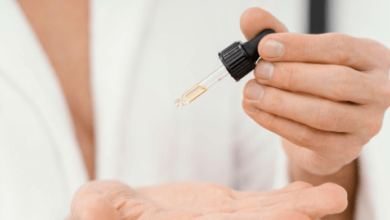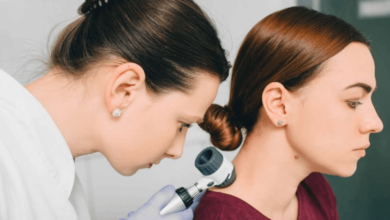The Truth About Skin Lightening Cream for Black Skin

Are you tired of dealing with dark spots, uneven skin tone or hyperpigmentation on your black skin? Skin-lightening creams may seem like a tempting solution. However, before jumping into using one, it’s crucial to understand the facts about these products. In this blog post, we’ll dive into the truth about skin lightening cream for black skin and what you need to know before trying them out. From how they work to their potential side effects – we’ve got all the information you need right here!
What are skin lightening cream For Black Skin?
Skin lightening cream for black skin are topical products that aim to reduce the amount of melanin in the skin. Melanin is a pigment responsible for giving our skin its color, and when produced in excess, it can result in dark spots or uneven skin tone.
Most skin lightening creams contain active ingredients such as hydroquinone, kojic acid, or alpha-arbutin – all of which inhibit melanin production. Some may also include additional ingredients like vitamin C or licorice extract to brighten the complexion.
It’s important to note that while these creams may lighten the overall appearance of your skin, they will not change your natural skin color. They simply reduce excess pigmentation and even out areas with irregular pigmentation.
How do they work?
Skin lightening creams work by reducing the production of melanin, which is responsible for giving color to the skin. Melanin is produced by specialized cells called melanocytes located in the skin’s epidermis layer. When these cells produce an excess amount of melanin, it can lead to hyperpigmentation and dark spots on the skin.
Skin lightening creams contain active ingredients that inhibit tyrosinase, a key enzyme involved in the production of melanin. Some common tyrosinase inhibitors found in skin lightening creams include hydroquinone, kojic acid, and arbutin.
Hydroquinone is one of the most effective and commonly used ingredients in skin lightening creams. It works by inhibiting tyrosinase activity and reducing melanocyte production. Kojic acid also works similarly to hydroquinone but is milder and less irritating on sensitive skin types.
Arbutin works differently than both hydroquinone and kojic acid by inhibiting another enzyme called glycosyltransferase that converts dopaquinone into eumelanin or pheomelanin.
Are they safe for black skin?
Skin lightening creams have been the subject of controversy for many years, particularly when it comes to black skin. Many people wonder if these products are safe for use on darker skin tones, and with good reason.
One issue that has been raised is the fact that some skin lightening creams may contain harmful ingredients such as mercury or hydroquinone.
In addition, it’s important to consider how your individual skin type might react to these products. Black skin tends to be more sensitive and prone to certain conditions like acne or eczema, which means that using harsh chemicals could exacerbate these issues.
What are the side effects of using skin lightening creams?
Skin lightening creams have become increasingly popular amongst black women seeking to achieve a lighter complexion. However, the use of these products comes with some potential side effects that users should be aware of.
One common side effect is skin irritation, which can range from mild redness and itching to severe rashes. This is often due to the harsh chemicals used in many skin lightening creams such as hydroquinone and mercury.
Another potential concern is uneven skin tone, as excessive use of these products can result in patches of significantly lighter or darker skin. This can be especially noticeable in areas like the face where it’s difficult to conceal with makeup.
Long-term use of skin lightening creams has also been linked to thinning and premature aging of the skin, making it more susceptible to wrinkles and sun damage.
Perhaps one of the most significant risks associated with using Skin Lightening Creams for Black Skin is increased sensitivity to UV radiation.
It’s essential for anyone considering using a Skin Lightening Cream for Black Skin to weigh up both sides carefully before making a decision. While they may provide temporary results, long-term usage could lead you into serious trouble without proper medical guidance. Read more…
Conclusion
Skin lightening creams can be a tempting solution for individuals with dark skin who want to achieve lighter tones. However, it is important to understand the risks and potential side effects associated with these products before using them.
While some skin-lightening creams may be safe for use on black skin, it is critical to read labels carefully and choose products that are specifically formulated for darker complexions.
Ultimately, achieving healthier and more radiant-looking skin requires taking care of your body from the inside out. Eating a balanced diet rich in vitamins and nutrients, staying hydrated by drinking plenty of water, getting regular exercise, and avoiding tobacco and excessive alcohol consumption are all key steps toward maintaining healthy-looking skin.
By prioritizing self-care practices like these over quick-fix solutions like skin-lightening creams, individuals can achieve long-lasting improvements in their overall well-being that go beyond just the surface appearance of their skin.




